Last weekend, climate activists around the world mobilized in person and online as of part Fridays for Future’s global climate strike under the rallying call #UprootTheSystem.
With an estimated 1,400 events in over 80 countries, actions across Asia were diverse and creative, navigating restrictions imposed by the lingering health crisis while harnessing the power of social media and online organizing. There was a particular effort on behalf of Fridays for Future to center the voices of MAPA — ‘most affected people and areas, a cohort which includes an intersectional array of climate vulnerable communities such as those in the Global South and Indigenous peoples.
The global climate strikes came just as a study was released in the journal Science this week which examined for the first time explicitly the intergenerational inequality inherent in the climate crisis — finding that at current trajectories, today’s six year olds will experience three times the amount of climate-induced disasters as their grandparents did. More specifically, they are likely to experience twice as many wildfires, 1.7 times as many tropical cyclones, 3.4 times as many river floods, 2.5 times as many crop failures, and 2.3 times as many droughts.
The strikes also come days after the 76th UN General Assembly held in New York, where significant media coverage praised both China’s commitment to cease building coal-fired power plants overseas and the United State’s commitment to double financing for renewable energy projects.
Both of these announcements were welcomed by the global climate movement, who are currently ramping up mobilization efforts and community organizing in the lead-up to the COP26 climate conference to be held in Glasgow in November — the first major climate conference since the Paris Agreement in 2015.
Countries are expected to make commitments regarding their National Determined Contributions, the mechanism that was introduced after the Paris Agreement that is aimed at keeping global warming to 1.5 degrees.
While many countries have pledged to achieve net zero emissions by 2050, concerned citizens, activists, scientists, and the intergenerational movement for climate justice argue that this pledge falls far short of the meaningful action needed to address climate change and limit global warming.
Commenting on the inequalities embedded in this years COP26 that concern the Global South, Fridays For Future MAPA said:
“The injustice around vaccines & climate are all caused by the same profit-oriented system where the richest hoard vaccines, overexploit natural resources in most affected areas, & continuously emit for the sake of their impossible dream of “everlasting growth.”
As communities across Asia are continuing to reel from the impacts of the Covid 19 pandemic, faced with surges in case numbers, restrictions on mobility and unequal access to vaccine and health infrastructure, we take a look at how activists employed creative communications tactics and online organizing to spread their messages and campaign for climate action here:
South Korea
In South Korea, Youth For Climate Action Korea and #FridaysForFuture activists utilized a mash up of in-person and digital campaigning to voice their concerns.

Image: @youth4climatekr
Bangladesh
In Bangladeshm, YouthNet 4 Climate Justice took part in a mobilization for the #GreenNewDeal Bangladesh campaign on September 22nd, and actions continued on September 24th with a human installation of ‘Green New Deal’ was erected.

Image: Activists in Noakhali, Bangladesh @YouthNet4CC

Activists in Lohagara, Narail, Bangladesh @YouthNet4CC

Activists in Barishal, Bangladesh Image: @iamcpbharti

Dhaka, Bangladesh. Image: @iam_RNN

Feni, Bangladesh. Image: @OpuSz

Cox’s Bazar, Bangladesh. Image: @JimranMohammed
Japan
On September 24th, 350 Japan along with Fridays For Future Japan conducted an online march for the ATO4NEN campaign. The influential Professor Kohei Saito, author of “Capital Theory of the New World”, a well known advocate for the global commons; an actress, Fumi Nikaido; and several influencers were invited to speak at the march. About 500 people attended through Zoom and another 100 attended through YouTube. In addition, 30 offline actions took place in local cities. The marches were covered by two TV stations, NHK and TV Asahi.
The actions called for systems change, and a response to the climate crisis that centers justice for marginalized and vulnerable groups. Professor Kohei Saito said “All problems, including climate change, are connected, and we are the last generation to stop this crisis, we must make a systems change”.

FFF Sendai, Japan also protested against the biomass power generation of the Sumitomo Corporation over the weekend.

Image: @Fridays4Future
Indonesia
On the 24th September, an online strike ‘Jeda Untuk Iklim’ to demand climate education took place via a change.org petition. Actions across the country also took place in solidarity with farmers against the appropriation of land and government inaction in the country.
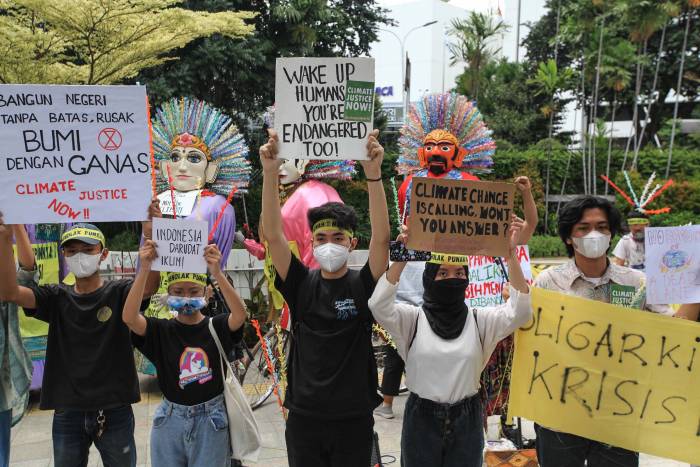
Image: @FFFMAPA
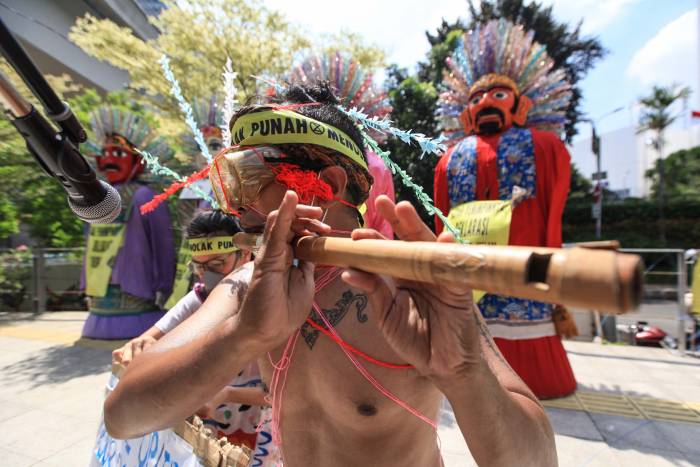
Image: @FFFMAPA
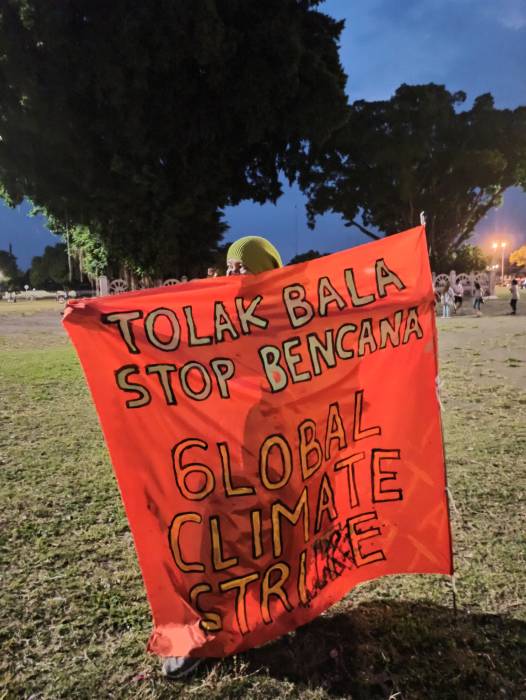
Image: Fossil Free Jogja
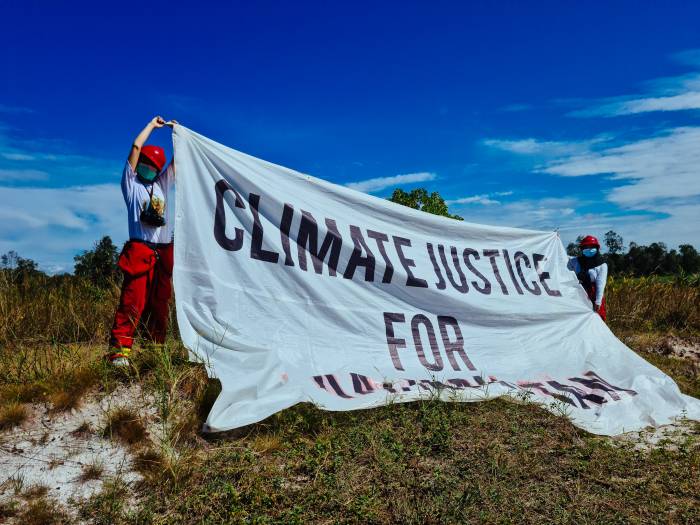
Image: Youth Act Kalimantan
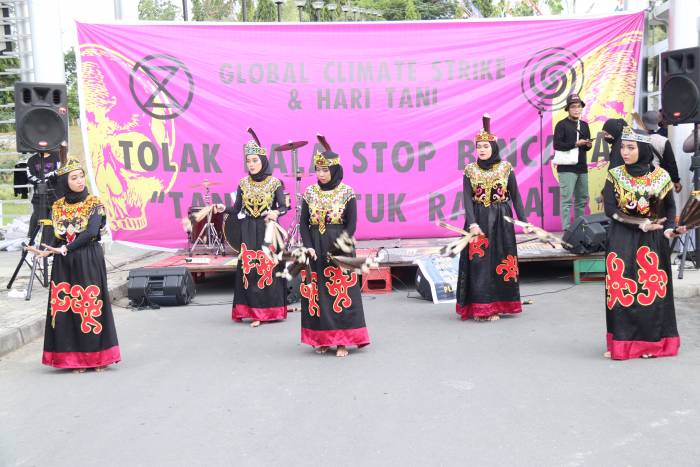
Image: Jeda Untuk Iklim
Malaysia
Climate activists in Malaysia took part in a digital mobilization to call for an end to false solutions:
https://twitter.com/FFFMAPA/status/1441297129805254664?s=20
Philippines
Youth Advocates for Climate Action Philippines participated in a day of action calling for action to be taken on the “systemic roots of the climate crisis and demand for drastic emission cuts and people-centered adaptation.”

Image: @FFFMAPA
Activists in Palawan call for an end to mining and #ClimateAction:

Image: @FFFMAPA
“Calling for #UprootTheSystem, we strike against the systemic roots of the climate crisis and demand for drastic emission cuts and people-centered adaptation.” said Xian Guevarra, a spokesperson from @YACAP.
“Today we’re striking in 13 locations all over the Philippines with the theme of #UprootTheSystem and #Klimalaman wherein we highlight the systemic roots of the climate crisis and seek to inform the public on why the only way to solve the crisis is to change our system to one that puts the people and the planet over profit.”
“We have to focus on what matters, stop allowing and creating projects that do nothing to solve the climate crisis, and worse, further destroy our environment. We need to focus on our climate targets by pushing for more reductions of emissions. The projects that we see today like the dolomite beach, WTE projects, reclamation, mangrove cutting, illegal coal dumping is a disservice to the people they are duty-bound to serve” they continued.
Taiwan
On September 22nd, Taiwan Youth Climate Coalition submitted a petition to the Presidential Office calling for more aggressive action on climate change in the lead up to a rally set for the weekend’s global day of action for climate.
“Climate change is no longer just a ‘responsibility for the next generation’ or a ‘think about the environment’ issue. It is now an issue for everyone to take responsibility for the future” said Yun-Fang Wu, a spokesperson from Taiwan Youth Climate Coalition.
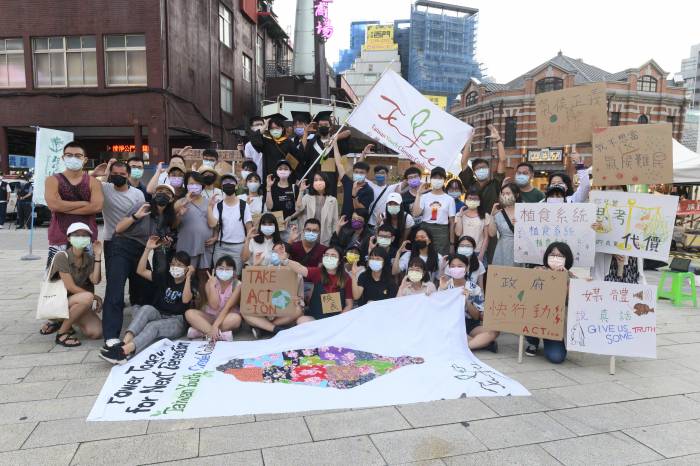
Image: @liyanahikes